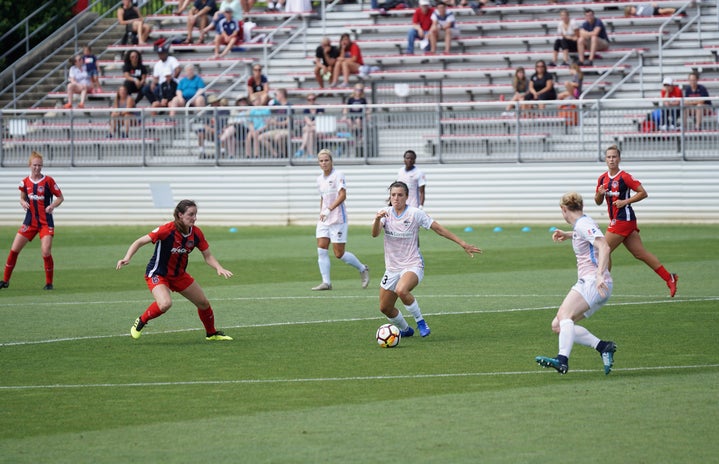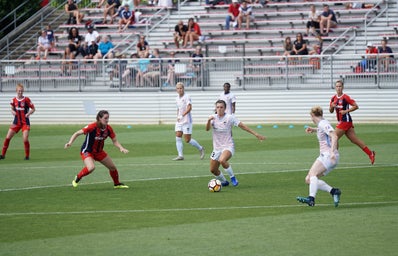Having won four Olympic Golds and four World Cup Championships, the United States Women’s Soccer Team is one of the most accomplished sports teams in the US: male or female, professional or club. In fact, the USWNT just recently dominated the qualifying tournament for the 2020 Tokyo Olympics and, yet, the American public does not seem to have any idea, or at least does not care.
Following a victory at the 2019 FIFA World Cup, the US Women’s soccer team is looking to become the first team in history to win Olympic Gold the year after winning the World Cup. Seemingly, they are on the right track with this qualifying round, winning 8-0, 4-0, and 3-0 against Panama, Haiti, and Canada, respectively. A streak of 25-0 in a 3 game period is almost unheard of in the soccer world, and the American media seems to make sure it stays that way.
The US Women’s Team continues to be marketed and covered significantly less than men’s sports in America. This is even after the gender discrimination lawsuit filed by the USWNT after their World Cup victory in 2019. The 28 female soccer players that were a part of the lawsuit stood on a case much greater than a simple pay disparity, including the fact that their team and game schedule are marketed much less than the men’s soccer team and, thus, receive less attendance and media coverage.

Megan Rapinoe, or “that pink-haired soccer chick” as she is often referred, was named FIFA’s Best Women’s Player along with many other accolades and was a key member of the gender discrimination lawsuit. Rapinoe is an activist for women’s sports and equality, saying that she “uses this beautiful game [soccer] to change the world for the better,” and encourages that we all find our own platform to do the same. Quoted from a Time article: Megan Rapinoe Wins FIFA’s Player of the Year, Calls for Players Around the World to Fight Inequality
Gender bias in sports is still a pressing issue in the American soccer world; a trophied women’s team that brings in more money than a men’s team that failed to even qualify for the World Cup in 2018 is still paid and marketed significantly less. This serves to show that despite the progress that has been made, the overriding bias in women’s sports is unchanged.




